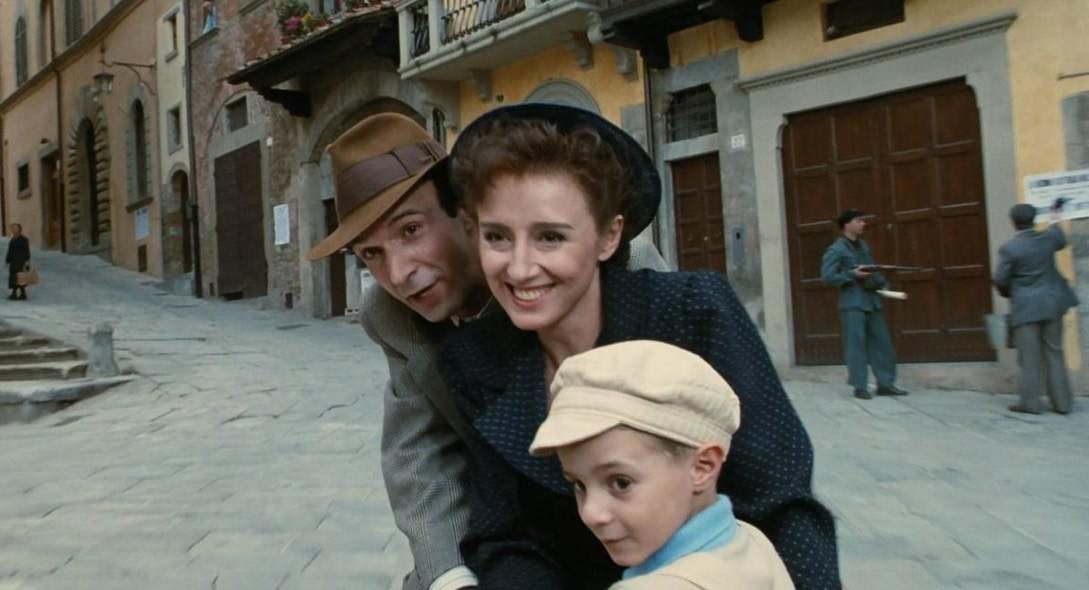La vita è bella (1997)

Directed by and starring Roberto Benigni, La vita è bella (Life is Beautiful) is a cinematic masterpiece that blends humor, love, and heartbreak in an unforgettable story. This 1997 Italian film has touched hearts worldwide, delivering a profound message of hope and resilience even in the face of unimaginable tragedy.

Set in 1930s Italy, the film begins as a charming romantic comedy. Guido (Roberto Benigni), a witty and optimistic young man, wins the heart of Dora (Nicoletta Braschi), a schoolteacher from a wealthy family, through his relentless charm and humor. Their love blossoms, and they build a joyful life together, complete with their young son, Giosuè.
However, the tone of the story shifts dramatically when World War II breaks out. Guido and his family are deported to a Nazi concentration camp, where the harsh realities of war and genocide threaten to destroy their world. Despite the horrific circumstances, Guido uses his creativity and humor to shield his son from the horrors around them.
He convinces Giosuè that their time in the camp is part of an elaborate game, where the “winner” earns a grand prize—a tank. Through this ingenious act of love, Guido preserves his son’s innocence, even as he sacrifices everything for his family.

La vita è bella is a testament to Roberto Benigni’s brilliance as both an actor and a director. His performance as Guido is magnetic, effortlessly balancing comedy with deep emotional nuance. Nicoletta Braschi brings warmth and quiet strength to Dora, while Giorgio Cantarini, as young Giosuè, delivers a performance that tugs at the heartstrings.
The film’s tonal shift from lighthearted romance to poignant drama is handled with incredible finesse, allowing viewers to experience the full spectrum of human emotion. Through its laughter and tears, La vita è bella reminds us of the enduring power of love and the importance of finding beauty even in the darkest times.











